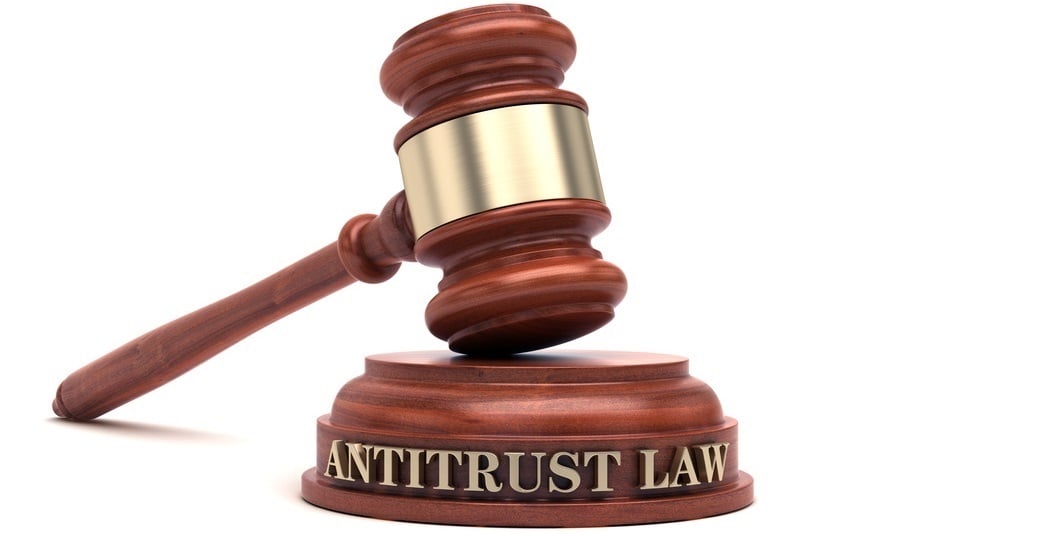The ABA Antitrust Section’s Spring Meeting provides an opportunity for review and reflection on recent antitrust developments. Here are a few that may be of interest:
Changes in Key U.S. Antitrust Enforcers Signal More to Come
The resignations of FTC Commissioner Julie Brill (leaving only 3 out of 5 FTC Commissioners) and Assistant Attorney General Bill Baer (to accept another DOJ position) come sooner than expected and signal that more changes may be on the way. With an administration change and possibly a party change coming soon, further new faces in Agency leadership over the next year are inevitable.[1]
Vigorous Enforcement In Evidence During Recent Merger Wave
Acknowledging the recent merger wave, U.S. government officials reiterated that product market definition and potential entry continue to play important roles in merger analysis. In applying a dynamic analysis, the Agencies look to innovation and the effect on future competition.
The Agencies have shown an increased willingness to litigate cases which they believe are anticompetitive. A number of cases have been abandoned following a decision by the Agencies to litigate. A number of proposed divestitures have been rejected by both Agencies in recent cases. The Agencies are continuing to challenge consummated mergers where they have cause to do so.
Given the global economy, merger review often entails more than one jurisdiction, and even though there has been some coordination for years, the Agencies are increasing coordination. Questions remain as to how best to coordinate merger review and whether to allow certain countries to take the lead. Best practices to comply with a Second Request have been issued by the Agencies.
Gun jumping — failing to file premerger notification and collusive conduct prior to closing — continues to be of concern in the U.S. and increasingly worldwide. The most recent case brought by the DOJ involves the investment-only exception to the Hart-Scott-Rodino Act and an “activist investor”.[2] This case provides further insight into the Agencies’ view that the scope of the “investment only” exemption to HSR notification is quite narrow. In short, the Agency’s view is that any influence on company activity eliminates the availability of the exemption. However, note that in a case brought in 2015,[3] the FTC was divided, with the two Republican commissioners suggesting that the FTC not focus solely on the technicalities of notification, but instead should look to whether there was any risk of competitive harm. Thus, this is another topic on which a change in Administration might have implications.
Cartel Enforcement Continues With an Increased Focus on Individual Conspirators
Halting and deterring price fixing cartels continues to be a key priority for the Antitrust Division. Last fiscal year the Division obtained over $3.6 billion in criminal fines and penalties. While these fines come from prosecutions in many industries, a key target in recent years has been the financial industry exchange spot market. Since the threat of prison time for individuals has been the single most valuable deterrent, the DOJ has strived to hold accountable the highest level of executives who participated in this illegal conduct. Convicted individuals are serving increased jail terms, and the number of foreign defendants convicted and jailed has also increased.[4] Note that the Yates memo on individual liability for corporate wrongdoing certainly does not decrease the pressure on the Antitrust Division to pursue individuals.[5]
Differences in IP Guidelines Require Assessment on a Country by Country Basis
While innovation is highly valued by all, jurisdictions vary in their view and treatment of intellectual property (“IP”) under the antitrust laws. Some jurisdictions have established antitrust IP guidelines; others have just modified their guidelines or are just proposing guidelines. A panel at the Spring Meeting addressed the question whether IP antitrust guidelines are adequate or whether more guidance — in particular, more coordinated guidance — would be helpful. In so doing, the panel noted some of the important similarities and differences that are arising in the U.S., Canada, China, the EU and Korea.
Although the importance of IP guidelines in cases in the U.S. was noted, the panelists discussed the difficulties in adopting or modifying guidelines when the law remains unsettled and in some cases untested. An initial question addressed by the panel was the definition of a “guideline”. In the U.S., the panelists noted the 1995 IP Guidelines issued by the FTC and DOJ and the 2007 DOJ and FTC Report on Antitrust Enforcement and Intellectual Property Rights. In the EU they cited the Technology Transfer Guidelines and its Technology Transfer Block Exemption. In China there are two agencies proposing guidelines. The State Administration for Industry and Commerce (“SAIC”) issued rules effective in August 2015[6] and has recently issued more guidelines on IP abuse.[7] Meanwhile, China’s National Development and Reform Commission (“NDRC”) issued its draft guidelines in December 2015[8] On the other hand, there are single sets of guidelines in Canada[9] and Korea. [10]
Generally, most of these jurisdictions agree that intellectual property does not confer market power upon its owner, that licensing is generally procompetitive and subject to a rule of reason analysis, and that there can be abuses in licensing or refusing to license. However, the jurisdictions differ on a number of important issues such as the conduct that is considered abusive, whether a patent owner can refuse to license a potential competitor, whether safe harbors are provided, and what is covered in the guidelines. For example, some jurisdictions like the U.S. and Canada include “safety zones” while others like Korea do not. Some like the EU[11] cover royalty obligations while others like the U.S. do not. Some like the EU, Canada and Korea [12] address settlement agreements including pay for delay, but others like the U.S. and China do not. Some address standard essential patents and non-practicing entities but most do not. Thus, until the law becomes more settled and there is more consensus among the various jurisdictions, the antitrust analysis of IP will depend on the laws of each country.
In a Digital World Online Vertical Restraints Remain Problematic in A Number of Countries
While vertical online restrictions pose few problems in the U.S., they continue to be challenged in other countries. “Geo-blocking” has become an important topic in the EU, and EU member states have sanctioned restrictions on internet sales. Germany is one of the countries taking a strict view, saying that efficiencies can be considered but rarely found to be sufficient.
Bans on platform sales are still being disputed. In particular, platforms using most favored nation (“MFN”) clauses, like the online travel agent/hotel platforms, have resulted in many challenges by EU member states and inconsistent results.[13] In short, the views on MFNs are not converging. There are differences between the U.S. and the EU and between the EU and its member states.
Penny Wise and Pound Foolish: Are Compliance Measures Fully Funded?
A panel discussing antitrust compliance discussed whether companies are underfunded and underinvested in antitrust compliance as compared to FCPA compliance. In that context the panel referred to a recent settlement in a private case in which Microsoft agreed to spend $42 million dollars for internal antitrust compliance.[14] The amount of money spent in compliance efforts may turn out to be an important consideration in determining whether the program is a sham or not. Noting recent cases involving marine hose[15] and freight forwarding[16] which prosecutions have included both offenses, another panel advocated investing in an integrated compliance program that covers both FCPA and antitrust.
Parental Liability in the EU is a Trap for the Unwary
An important area in global compliance that may easily be overlooked is parental liability. In the EU knowledge by the principal is not required for liability. There is a presumption of liability for parent companies which is very difficult to rebut. In one case in a member state, the entity engaged in the conspiracy was a subcontractor, two layers down from the contractor. The lesson here is one of due diligence — taking all necessary steps to check and monitor subsidiaries and third party contractors. This is very different from the law in the U.S., where a parent is not liable unless it knows of and participates in the conspiracy.
Many Jurisdictions Reviewing and Revising Their Laws
Perhaps the most important take away from the Spring Meeting is the continuing change in law and policy in jurisdictions around the world. In addition to new and revised intellectual property guidelines discussed above, a number of jurisdictions are planning to review and possibly revise other guidelines or aspects of their enforcement policy. Just to name a few:
- China leads the list with a number of proposed guidelines. Among other things, MOFCOM is working to increase the penalties for companies that fail to notify transactions for merger review and may launch investigations of problematic transactions that are below the filing threshold.
- Changes to Chilean law will introduce a new mandatory filing system for mergers and criminalization of certain anticompetitive conduct.
- Argentine enforcers are proposing changes to the merger thresholds and the creation of a leniency program.
- Brazil has proposed guidelines with respect to settlements in cartel cases.
- South Africa has published draft guidelines setting out how it will assess the public interest in merger review.
- The FTC is reviewing the foreign entity exemption to the Hart-Scott-Rodino Antitrust Improvements Act.
[1] In addition, one speaker expressed the view that the Supreme Court may not grant certiorari in cases where a split on the Court is likely.
[2] U.S. v. VA Partners, ValueAct Capital Master Fund, L.P., 3:16-cv-01672 (N.D. Cal. April 4, 2016)(complaint filed).
[3] U.S. v. Third Point Offshore Fund, Ltd., 1:15 cv-01366 (D.D.C. 2015)(Challenge to Third Point’s investment in Yahoo! Inc.). See also In the Matter of Third Point, File No. 121-0019, Statement of the FTC and Dissenting Statement of Commissioners Ohlhausen and Wright (Aug. 24, 2015).
[4] Assistant Attorney General Bill Baer’s Testimony Before the Senate Judiciary Subcommittee on Antitrust, Competition Policy and Consumer Rights (March 9, 2016).
[5] DOJ Deputy Attorney General Yates Memo (September 9, 2015) available at http://www.justice.gov/dag/file/769036.
[6] SAIC, Rules on the Prohibition of Abuses of Intellectual Property Rights for the Purposes of Eliminating or Restricting Competition (2015).
[7] SAIC, Guidelines on Antitrust Enforcement Against IP Abuse (draft 2016).
[8] NDRC, Anti-Monopoly Guidelines on Abuse of Intellectual Property Rights (draft 2015).
[9] Canada Competition Bureau, Intellectual Property Enforcement Guidelines (revisions released March 31, 2016).
[10] Korea Fair Trade Commission, Review Guidelines on Unfair Exercise of Intellectual Property Rights (2014)(under revision).
[11] Canada, Korea, Japan and the NDRC also cover royalty obligations.
[12] Canada and Korea also cover non-practicing entities but others do not.
[13] Based upon a settlement agreement, France, Italy and Sweden initially closed their investigations. However, decisions in Germany have struck down MFNs and France now prohibits MFNs by statute.
[14] See Barovic v. Ballmer, 2:14-cv-00540 (W.D. Wa. 2015)(where Microsoft agreed to pay this amount for compliance in settlement of a shareholder suit).
[15] Press Release, U.S. DOJ, Japanese Executive Pleads Guilty; Sentenced to Two Years in Jail for Participating in Conspiracies to Rig Bids and Bribe Foreign Officials to Purchase Marine Hose (Dec. 10, 2008).
[16] Press Release, U.S. DOJ, Three Vetco Int’l Ltd Subsidiaries Plead Guilty to Foreign Bribery (Feb. 6, 2007).



